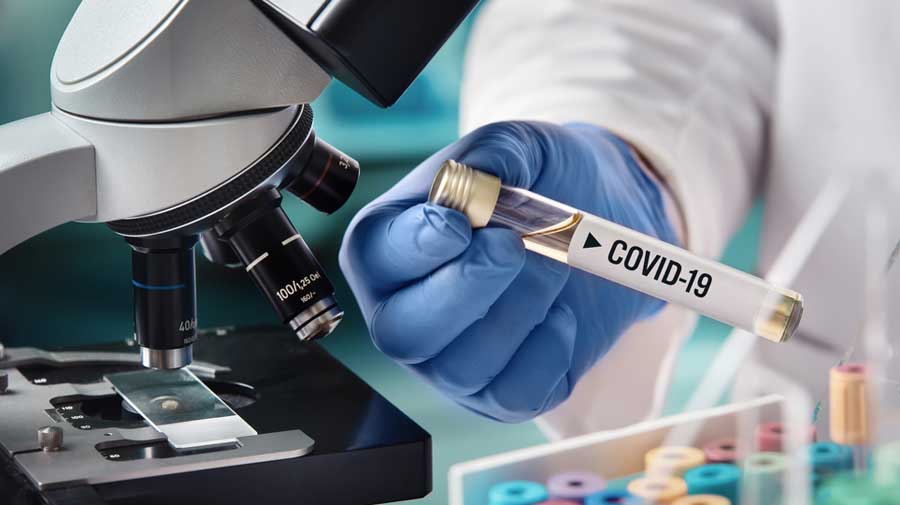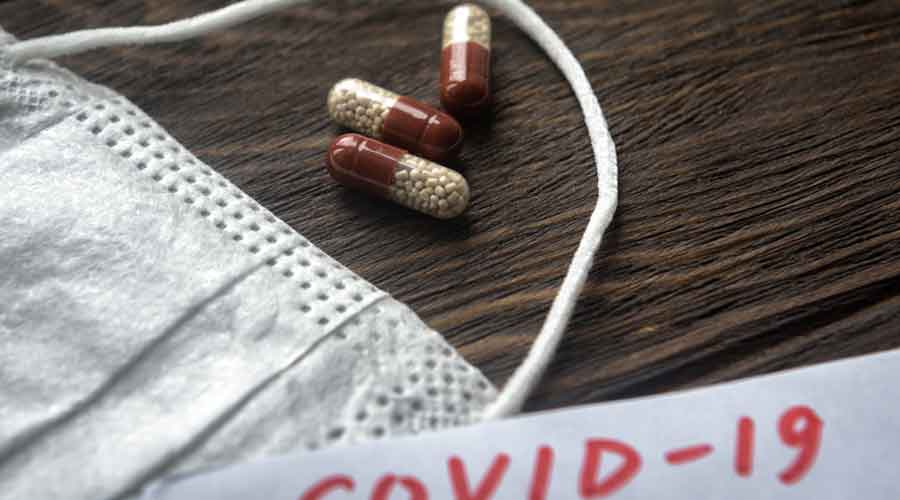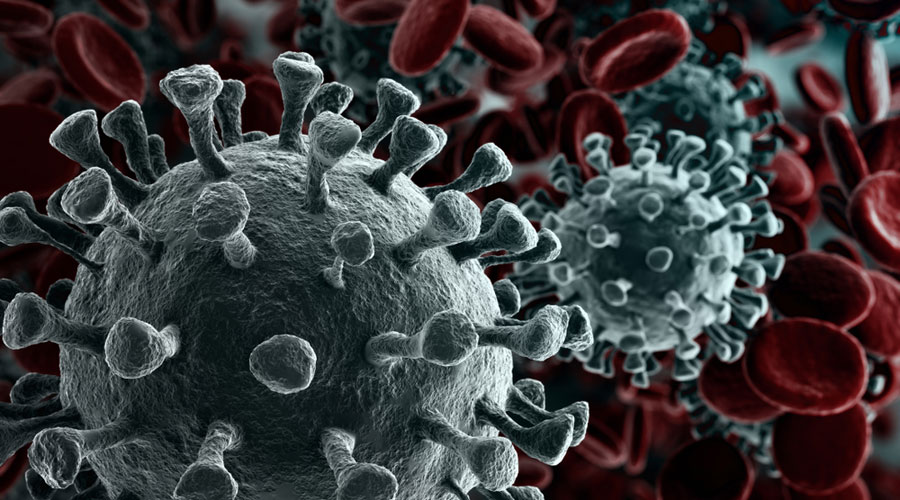India and South Africa have asked an international trade body to enable “unhindered global sharing” of technology and knowhow to make available enough diagnostic tests, equipment, medicines, and vaccines to address the new coronavirus pandemic.
The two countries have urged the World Trade Organisation’s council on intellectual property rights to waive certain provisions of the Trade Related Intellectual Property Rights agreement towards the prevention, containment and treatment of Covid-19.
Their submission, made on Friday, says that as new diagnostics, therapeutics and vaccines for Covid-19 are developed, there are “significant concerns” over how these would be made available promptly, in sufficient quantities and at affordable prices to meet the global demand.
While a rapid scale-up of the global production is “an obvious crucial solution”, the submission said, there are concerns about intellectual property rights “hindering or potentially hindering” the timely distribution of affordable products.
The submission has requested the TRIPS council to waive certain provisions to allow the global sharing of technology and knowhow and facilitate large-scale domestic production of Covid-related products.
“The waiver should continue until widespread vaccination is in place globally, and the majority of the world’s population has developed immunity. Hence we propose an initial duration of [x] years from the date of the adoption of the waiver,” the submission said.
The submission’s use of “x” in square brackets, instead of specifying a precise number, signifies its openness to international negotiation over the length of the waiver period.
Patients’ rights advocates have welcomed the India-South Africa proposal and are hoping other governments would support the call.
“It is crucial that other WTO member governments support this,” Leena Menghaney, a lawyer and South Asia regional head for the access campaign of Medecins Sans Frontieres, the international humanitarian agency, told The Telegraph.
“We need this to ensure that drugs, vaccines and other medical tools needed for Covid-19 can be scaled up by countries and their manufacturers without facing protracted negotiations for licences.”
The TRIPS council’s next session is scheduled on October 15-16. Analysts said they were watching how the European Union, Japan, Switzerland, the UK and the US respond to the call.
Menghaney underlined that in 2011, the Doha Declaration on TRIPS and public health had affirmed that governments were free to take all necessary measures to protect public health.
“Very simply, it puts governments in the driving seat to be able to put life before profit. The India-South Africa proposal does precisely that for Covid-19,” she said.
The proposal, if adopted, will help address two key concerns — prices and production capacity.
Earlier this year, Costa Rica, Chile and the World Health Organisation had announced a platform to pool data, knowledge and intellectual property relating to existing or new Covid-19 health products with the objective of delivering the necessary goods for all people and countries.
Open sharing of science and data would enable numerous companies to access the information they need to produce the technologies, thereby scaling up availability worldwide, lowering costs and increasing access, the WHO had said in May.
“Traditional market models will not deliver at the scale needed to cover the entire globe,” WHO director-general Tedros Adhanom Ghebreyesus had said.
“Solidarity within and between countries and the private sector is essential if we are to overcome these difficult times.”
Medical activists say the concerns are global and that the developed countries too may face challenges.
Ellen t’Hoen, an international medical activist in the Netherlands, had in a report in the journal Nature Medicine earlier this year cited an instance of her country facing difficulties in scaling up testing for Covid-19 because of the shortage of a biochemical needed in the testing machines.
While pharmacists could in principle make the solution, a private company refused to reveal the formula and the technical specifications, t’Hoen said.
“The Netherlands government, following a fierce debate in its Parliament, successfully pressured (the company) to release the formula,” she wrote. India and South Africa have asked an international trade body to enable “unhindered global sharing” of technology and knowhow to make available enough diagnostic tests, equipment, medicines, and vaccines to address the new coronavirus pandemic.
The two countries have urged the World Trade Organisation’s council on intellectual property rights to waive certain provisions of the Trade Related Intellectual Property Rights agreement towards the prevention, containment and treatment of Covid-19.
Their submission, made on Friday, says that as new diagnostics, therapeutics and vaccines for Covid-19 are developed, there are “significant concerns” over how these would be made available promptly, in sufficient quantities and at affordable prices to meet the global demand.
While a rapid scale-up of the global production is “an obvious crucial solution”, the submission said, there are concerns about intellectual property rights “hindering or potentially hindering” the timely distribution of affordable products.
The submission has requested the TRIPS council to waive certain provisions to allow the global sharing of technology and knowhow and facilitate large-scale domestic production of Covid-related products.
“The waiver should continue until widespread vaccination is in place globally, and the majority of the world’s population has developed immunity. Hence we propose an initial duration of [x] years from the date of the adoption of the waiver,” the submission said.
The submission’s use of “x” in square brackets, instead of specifying a precise number, signifies its openness to international negotiation over the length of the waiver period.
Patients’ rights advocates have welcomed the India-South Africa proposal and are hoping other governments would support the call.
“It is crucial that other WTO member governments support this,” Leena Menghaney, a lawyer and South Asia regional head for the access campaign of Medecins Sans Frontieres, the international humanitarian agency, told The Telegraph.
“We need this to ensure that drugs, vaccines and other medical tools needed for Covid-19 can be scaled up by countries and their manufacturers without facing protracted negotiations for licences.”
The TRIPS council’s next session is scheduled on October 15-16. Analysts said they were watching how the European Union, Japan, Switzerland, the UK and the US respond to the call.
Menghaney underlined that in 2011, the Doha Declaration on TRIPS and public health had affirmed that governments were free to take all necessary measures to protect public health.
“Very simply, it puts governments in the driving seat to be able to put life before profit. The India-South Africa proposal does precisely that for Covid-19,” she said.
The proposal, if adopted, will help address two key concerns — prices and production capacity.
Earlier this year, Costa Rica, Chile and the World Health Organisation had announced a platform to pool data, knowledge and intellectual property relating to existing or new Covid-19 health products with the objective of delivering the necessary goods for all people and countries.
Open sharing of science and data would enable numerous companies to access the information they need to produce the technologies, thereby scaling up availability worldwide, lowering costs and increasing access, the WHO had said in May.
“Traditional market models will not deliver at the scale needed to cover the entire globe,” WHO director-general Tedros Adhanom Ghebreyesus had said.
“Solidarity within and between countries and the private sector is essential if we are to overcome these difficult times.”
Medical activists say the concerns are global and that the developed countries too may face challenges.
Ellen t’Hoen, an international medical activist in the Netherlands, had in a report in the journal Nature Medicine earlier this year cited an instance of her country facing difficulties in scaling up testing for Covid-19 because of the shortage of a biochemical needed in the testing machines.
While pharmacists could in principle make the solution, a private company refused to reveal the formula and the technical specifications, t’Hoen said.
“The Netherlands government, following a fierce debate in its Parliament, successfully pressured (the company) to release the formula,” she wrote.













